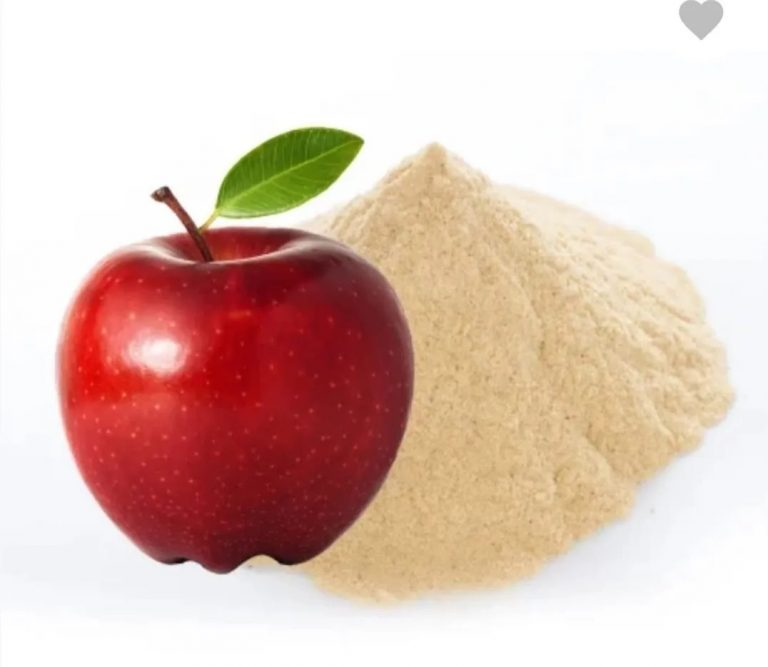
The growth of global apple powder has been reported by our analyst, highlighting its role in improving human life due to its various benefits. The analyst also noted that apple powder production in Nigeria remains limited due to factors like a lack of fertile land for large-scale cultivation. This piece explores small-scale apple powder production using existing data and insights from producers in Europe and America, where the product is widely used.
As noted earlier, apple powder is a versatile ingredient. It naturally sweetens smoothies, drinks, and beverages, enhancing flavour in water, tea, or yoghurt drinks. In baking, it works well in cakes, cookies, muffins, and pancake or waffle batter. It also enhances granola bars, snack mixes, and cider-flavored treats. Apple powder intensifies the taste of applesauce and jams and adds a fruity twist to savoury sauces or soups. It’s beneficial in health supplements for its fibre and antioxidants and is used in face masks and hair care. It also serves as a natural sweetener and flavour enhancer in wellness recipes like smoothie bowls or energy drinks.
In the meanwhile, choosing the right apples is the first step in making apple powder. According to information, producers typically favour ripe and fresh apples. For instance, some producers point out that tart apples can also be utilized, but fuji or gala apples, which fall into the sweet category, are frequently employed. The selected flavour will determine this. What distinguishes fresh apples from ripe ones? One of the most important things to ask before starting an apple powder business is this one.
Start with a visual assessment to determine whether an apple is ripe or fresh: ripe apples have smooth skin, no deep bruises or creases, and brilliant colours unique to that variety. Check for firmness; ripe apples should feel weighty, which indicates juiciness, and they should yield slightly when pressed without becoming squishy. Overripe apples may smell sour, while fresh apples smell delicious. Examine the stem; freshness is indicated by a green, supple stem. Instead of being dry or tasteless, the flavour should be sweet or tangy with juiciness. While dull skin symbolizes aging, glossy skin conveys freshness. Additionally, apples are best harvested in season, and pressure marks are normal, but large dents indicate deterioration.
Wash and peel is the second step. Some producers claim that this step is optional. The apples must be cleaned of any dirt or pesticides. Washing before peeling is therefore crucial to creating high-quality apple powder that will be liked by customers both locally and internationally. Another way to look at this is that, although you can peel the apples, doing so will preserve the additional nutrients and fibre. Before slicing the apples, you must remove the nut that is inside the inner circle, which is known as core removal. To guarantee that the apples dehydrate uniformly, they are sliced. Thinner slices dry more quickly.
Apples can be dehydrated using a variety of techniques. Apple slices should be arranged on trays so they do not overlap. Then, set the dehydrator to 135°F (57°C) and leave it running for 8 to 12 hours, or until the apples are dry and brittle. Arrange the apple slices in a single layer on a baking sheet and preheat the oven to the lowest setting possible, about 170°F or 75°C. Using a wooden spoon, keep the oven door slightly open while baking for 4 to 8 hours, checking for dryness. Another option for bright, dry days is to sun-dry them. Depending on the climate, set the slices on a clean mesh tray and let them dry for one to two days. Every technique guarantees that the apples are completely dried and prepared for powdering.
You can use a blender, food processor, or spice grinder to grind the apples into powder after they are completely dehydrated. The dried apples should be ground into a fine powder after first being pulsed until they split into smaller pieces. To maintain its flavour and keep moisture out, keep the apple powder in an airtight container. The best location for long-term storage is somewhere cool and dark, like a pantry. You can keep the powder in the refrigerator or freezer to extend its shelf life. A variety of additives can be used to prolong the shelf life and preserve apple powder. These consist of calcium/potassium sorbate, silica gel, citric acid, and tartaric acid.







